Best VPN for Banking: Top 5 VPNs for Online Banking in 2025
The world is awash with fraudulent characters who would do anything to lay hands on your banking information. That's why using a VPN is a shrewd move. In this article, we'll show you the best banking VPNs to leave scammers and hackers scratching their heads.
Online banking is a double-edged sword. It gives you the convenience of checking your account, transfering funds and making investments on the go. However, with scammers and malicious characters running rampant, your account could be hacked, especially if you’re using public WiFi. That’s why you need the best VPN for banking.
Banks generally offer a number of protection features, including alert notifications and multi-factor authentication. However, scammers and fraudsters have learned how to outsmart these systems with all kinds of malware attacks, spyware, phishing and other online scams. Your best bet is to use a virtual private network (VPN) to hide your identity and encrypt your internet traffic.
Unfortunately, not all VPNs have the kind of security and privacy features required to keep you safe while accessing your bank account online. In this guide, we’ll show you the five best VPNs that can help you keep your credentials safe. To give you a head start, NordVPN is the best for online banking, mainly because of its strong encryption features.
-
11/01/2023
Updated the article to reflect ExpressVPN’s recent increase of 5 simultaneous connections to 8, as well as its expansion of server presence to 105 countries, previously 94.
-
07/06/2024
Updated the article to reflect latest information on NordVPN’s allowed number of simultaneous connections.
-
10/01/2024 Facts checked
We revised the provider order based on our comprehensive reevaluation of the VPNs’ capabilities and value.
Top VPNs for Banking
- 1
- : PayPal, Credit card, Google Pay, JCB, UnionPay, Bitcoin, Ethereum, X-Coin
- : 10
- :
- :
- :
- :
Average speedDownload Speed87 MbpsUpload Speed9 MbpsLatency3 ms - 2
- : PayPal, Credit card, Google Pay, Amazon Pay
- : Unlimited
- :
- :
- :
- :
Average speedDownload Speed93 MbpsUpload Speed9 MbpsLatency3 ms - 3
- : PayPal, Credit card, Bitcoin, UnionPay, iDeal, Sofort, Giropay, Pixpay, Sepa Direct Debit
- : 8
- :
- :
- :
- :
Average speedDownload Speed90 MbpsUpload Speed9 MbpsLatency3 ms - 4
- : PayPal, Credit card, bitcoin, Amazon Pay
- : 7
- :
- :
- :
- :
Average speed - 5
- : PayPal, Credit card, Amazon, Paygarden, Apple Pay, Google Pay
- : Unlimited
- :
- :
- :
- :
Average speedDownload Speed67 MbpsUpload Speed9 MbpsLatency114 ms
What Makes the Best VPN for Banking?
In creating this list, we examined scores of VPNs, looking for the ones with high-end security and privacy features. In addition, we tested the VPNs to see how easy they were to use. From our research and testing, we’ve identified the five best VPNs for online banking.
Protect Your Privacy. Get Our Free VPN Guide Now!
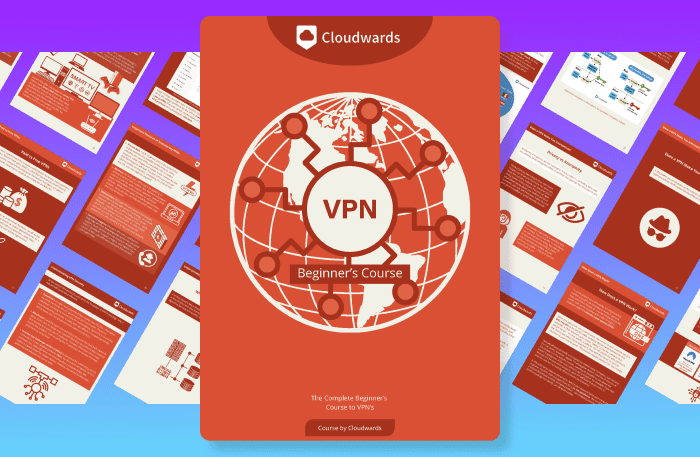
- Comprehend the essential role a VPN plays in safeguarding your digital life
- Gain a deep understanding of how VPNs function under the hood
- Develop the ability to distinguish fact from fiction in VPN promotions
For online banking, privacy and security features are a no-brainer. Besides the standard AES-256 encryption, you need a VPN that has an automatic kill switch and leak protection (DNS, IP and WebRTC) and a strict zero-logs policy to ensure your online banking details are never exposed. Your bank may flag your account if it discovers that you’re using a VPN, so obfuscation features are crucial.
A variety of VPN protocols are also useful here since you can get a fine mix of speed and security for online banking. The gold standard when it comes to protocols is OpenVPN, but top-of-the-line VPNs offer an array of protocol options, including IKEv2 and the extra-secure WireGuard. To get a grip on VPN protocols, check out our insightful VPN protocol breakdown.
The last thing you’d want while banking online is a complicated VPN, especially if you’re new to VPNs. A good VPN should be organized and dead simple to use; it shouldn’t take more than a couple of clicks to connect or disconnect. In addition, a good banking VPN should make finding and setting advanced features a breeze, whether you’re looking to change protocols or automate your VPN.
The 5 Best VPNs for Banking
In this section, we’ll dive into the nitty-gritty of each of our banking VPNs, showing you why they made the cut as well as their standout features. It’s worth noting that all the VPNs on this list have apps for a variety of platforms, including Windows, macOS and Android.
1. NordVPN — Best Banking VPN Overall
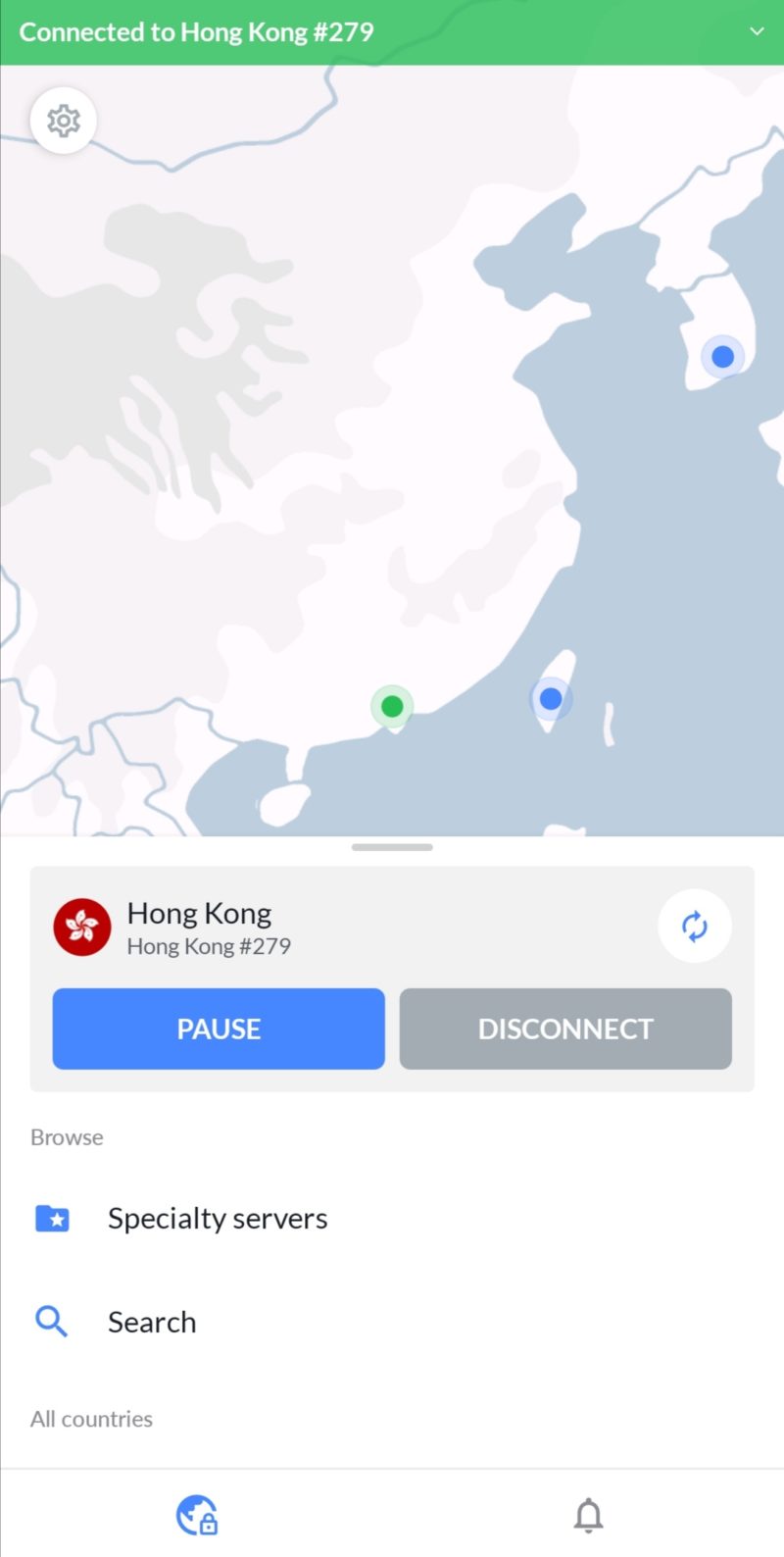

Very Fast

Very Fast

Very Fast
NordVPN tops the ranking of banking VPNs for several reason. In terms of the sheer number of security features, NordVPN is hard to beat. Aside from the standard AES-256 encryption and an automatic kill switch, NordVPN has some interesting features to safeguard your online banking, including a double VPN feature which encrypts your traffic twice.
Additionally, threat protection — NordVPN’s blocking feature — blocks malicious sites or fake banking sites. This feature is the main reason why NordVPN is our best VPN with an antivirus. Learn more in our extensive NordVPN review.
Avoid Verification Requests With a Dedicated IP Address
When your bank notices that you’re using a different IP each time you access your online account, it might flag your account and require security measures like CAPTCHAs. NordVPN gives you a dedicated IP address to ensure you avoid the “bad neighbor” effect and access your account without hassle. However, you’ll need to pay extra for one.
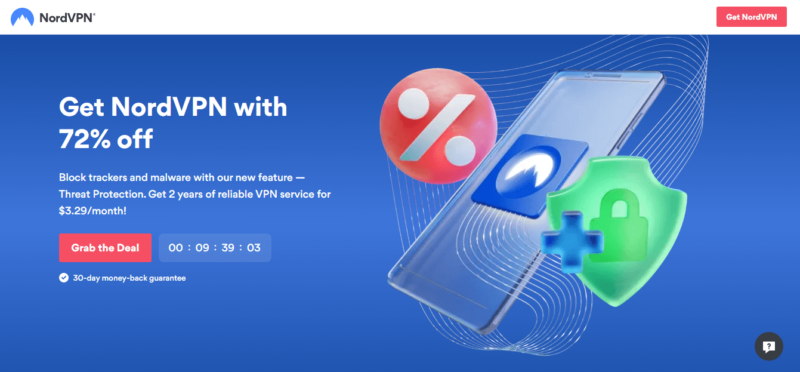
NordVPN has an expensive monthly plan, but the best deal is the two-year plan, which saves you a chunk of money. Overall, it’s a relatively affordable VPN (though not as affordable as our next pick), and all of its payment plans come with a 30-day money-back guarantee.
- **VAT may apply
- Unlimited GB
- 10
- Yes
- *The prices are charged in the first billing cycle only. Renewal prices vary.
- Unlimited GB
- 10
- Yes
- *The prices are shown only apply for the first 12 months.
- Unlimited GB
- 10
- Yes
- **The prices are applicable only for the first 24 months. Secure, high-speed VPN Threat Protection Pro™: Anti-malware and advanced browsing protection Threat Protection Pro™: Ad and tracker blocker Password manager with Data Breach Scanner 1 TB of encrypted cloud storage Identity and SSN monitoring and alerts Credit monitoring services Up to $1M in identity theft insurance Up to $100K in cyber extortion insurance
- 10
2. Surfshark — Best Budget Banking VPN
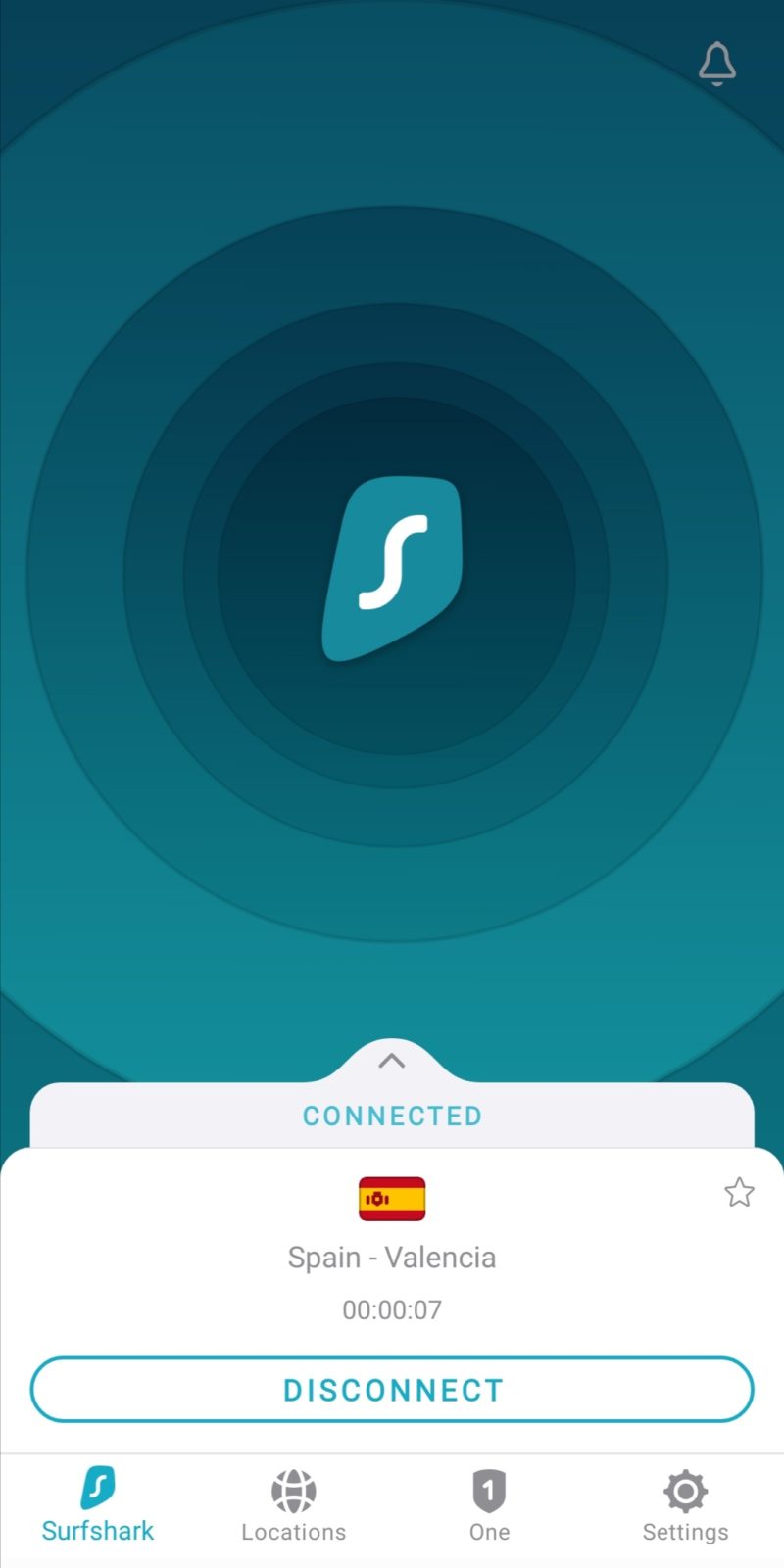

Very Fast

Very Fast

Very Fast
If you don’t have the budget for NordVPN, then Surfshark is a great alternative, especially if you want a VPN for the long haul. Despite being one of the best cheap VPNs, it doesn’t skimp on security features. You get obfuscated servers, double VPN servers, and secure and fast protocols, including the fast and secure WireGuard.
Further, Surfshark comes with a camouflage mode which obfuscates your traffic and a NoBorders mode — useful for bypassing geoblocks in restrictive countries like China. Considering that you get access to over 3,200 servers in 65 countries, Surfshark is certainly a viable option. Learn more in our Surfshark review.
Enjoy Simultaneous Connections for Banking
Many VPNs place a limit on the number of devices you can connect at the same time. For example, ExpressVPN allows only eight simultaneous connections, while NordVPN caps it at 10. However, Surfshark allows you to connect an unlimited number of devices at once, making it a good choice if you often access your bank account across multiple devices.
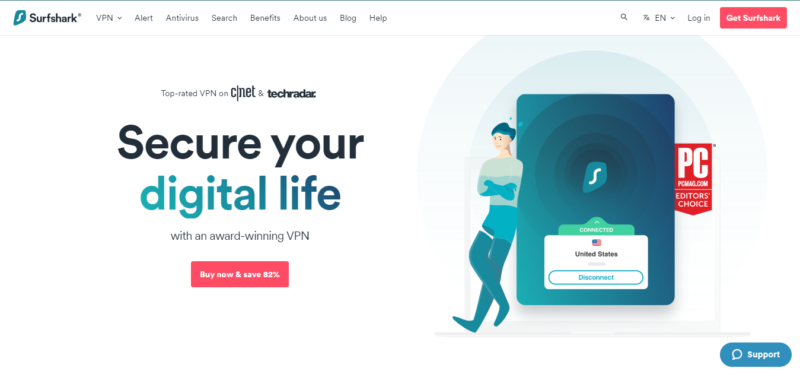
Surfshark’s monthly plan is more expensive than even ExpressVPN’s (see how they differ more in our Surfshark vs ExpressVPN review), but you get significant discounts with the one-year and two-year plans, making it one of the cheapest VPNs. Each plan comes with a 30-day money-back guarantee.
- Unlimited GB bandwidth, Unlimited devices, Secure VPN, Ad blocker, Cookie pop-up blocker. Pricing for the annual and biennial plans only apply for the first payment. Renewal fees vary.
- Unlimited GB
- Unlimited
- Yes
- Everything in Starter, plus Antivirus protection, Identity protection, Email Breach and Credit Card Alerts, Online Alias Pricing for the annual and biennial plans only apply for the first payment. Renewal fees vary.
- Unlimited GB
- Unlimited
- Everything in One, plus Data removal Pricing for the annual and biennial plans only apply for the first payment. Renewal fees vary.
- Unlimited GB
- Unlimited
3. ExpressVPN — Best Beginner-Friendly Banking VPN
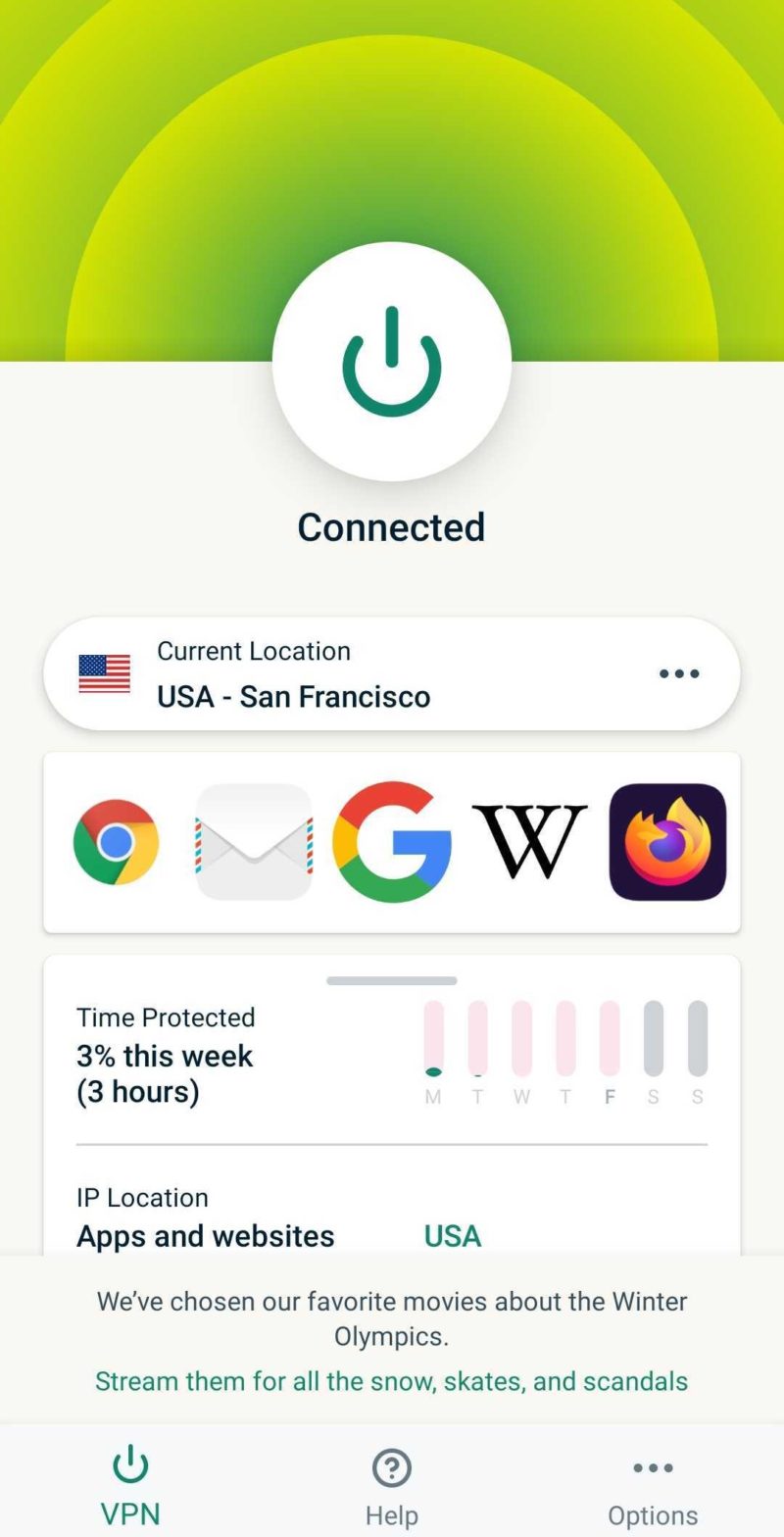

Very Fast

Very Fast

Very Fast
ExpressVPN is one of the most secure VPNs, alongside NordVPN and Surfshark, as you can see in our ExpressVPN vs NordVPN comparison. With ExpressVPN, you get the military-grade AES-256 encryption alongside perfect forward secrecy and comprehensive leak protection (IP, DNS and WebRTC) as you can see in our ExpressVPN review.
What’s more, ExpressVPN’s suite of servers in 105 countries come with obfuscation to hide the fact that you’re using a VPN from your bank (or anyone else), so it won’t flag your account. Add all that to the fact that ExpressVPN is one of the fastest VPNs as well as the most beginner-friendly VPN and it’s easy to see why it does well in this list.
Protect Your Online Banking With the Reliable Lightway Protocol
ExpressVPN really shines when it comes to protocols. Besides the standard protocols like OpenVPN and IKEv2, the VPN service offers the modern Lightway protocol, which is faster while keeping a high level of security. In addition, you get always-on protection, which ensures that even if your network is fluctuating or you’re switching from LTE to WiFi, your VPN connection won’t drop.
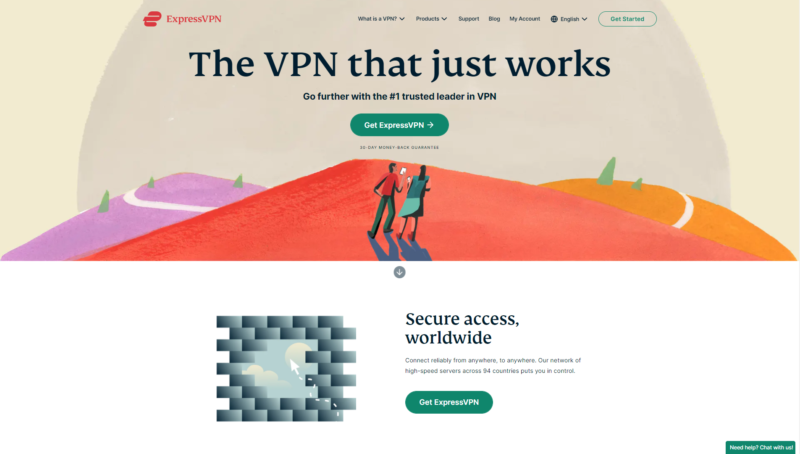
ExpressVPN’s main drawback is that it’s pricey but you can save quite a bit on the one-year plan. Each plan comes with a 30-day money-back guarantee.
4. CyberGhost — Decent Banking VPN With Cheap Plans
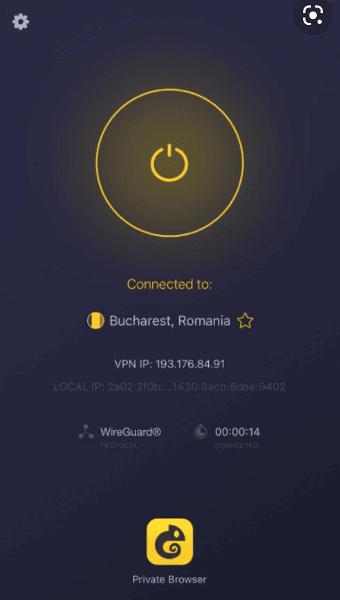



Although Surfshark slightly nudges past CyberGhost in terms of security features — as you can see in our Surfshark vs CyberGhost comparison — CyberGhost more than holds its own. You get AES-256 encryption, an automatic kill switch, DNS leak protection and a strict no-logs policy. In addition, you can access a dedicated IP address by paying a small fee.
CyberGhost also has a larger server network, boasting over 7,400 servers in 91 countries — it’s the largest server count we’ve seen yet, though ExpressVPN covers three more countries. As protocols go, “Ghosties” get the IKEv2 and OpenVPN protocols, but there’s no WireGuard as you can see in our CyberGhost review.
Create Your Own Privacy Triggers With Smart Rules
With CyberGhost’s smart rules feature, you can customize your VPN to fit your needs. For example, you can set up CyberGhost to alert you or connect to a VPN server each time it detects a new unsecured WiFi network (it’s one of the best VPNs for public WiFi). You can also configure CyberGhost to launch each time you open mobile banking apps.
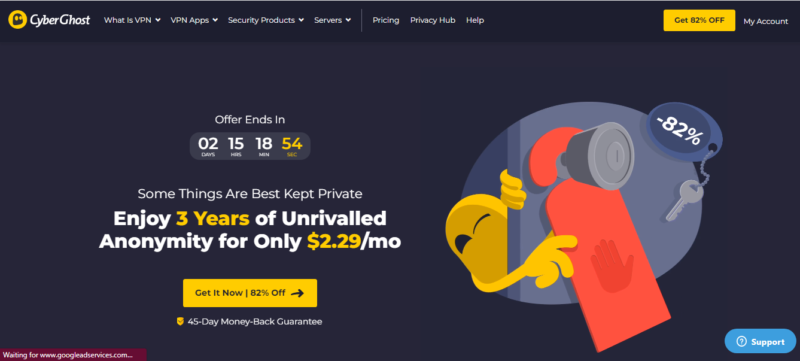
Like all the other VPNs on this list, CyberGhost’s monthly plan is expensive, but you get significant discounts on the long-term plans, especially if you opt for three years. Each plan comes with a 45-day money-back guarantee, the longest we’ve seen so far. Read our ExpressVPN vs CyberGhost comparison guide to learn how it compares to a higher-rated pick.
5. Private Internet Access (PIA) — Affordable Banking VPN With Dedicated IPs
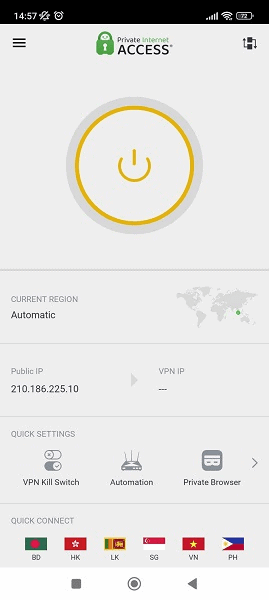

Fast

Very Fast

Good
PIA takes the fifth spot in this review, thanks in large part to its array of useful security features. Granted, it’s not as fast as the likes of ExpressVPN and NordVPN, but a lineup of AES-256 encryption, leak protection and a built-in ad blocker is nothing to sneer at.
When it comes to protocols, OpenVPN is the default, but you can also access the WireGuard protocol, which is more efficient. Note that you can get other features like an antivirus and a dedicated IP address at an extra charge.
Avoid Malicious Sites With MACE
One of the most common ways scammers steal banking details is by using fake banking sites. PIA’s built-in ad blocker, MACE, alerts you to and blocks you from visiting such malicious sites to ensure your online transactions are safe. Aside from malware, MACE also blocks ads and cross-site trackers. Learn more about MACE in our PIA review.
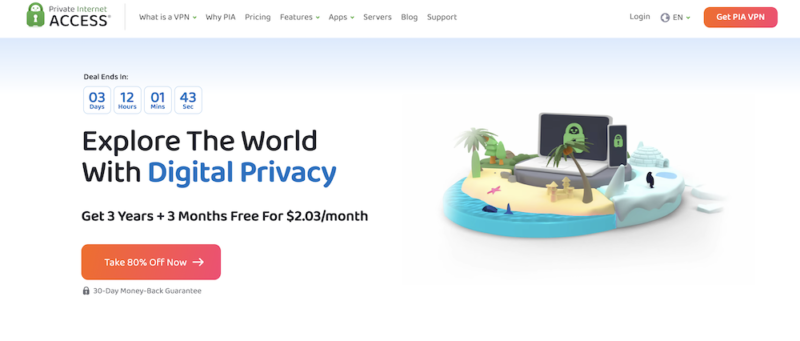
PIA’s most appealing plan is the three-year plan, which is heavily discounted compared to the monthly plan. Each plan comes with a 30-day money-back guarantee.
Can I Use a Free VPN for Online Banking?
You can use free VPNs to access your online bank account, but there’s a caveat. Some free VPNs log your traffic and sell it to advertisers and hackers, potentially leaving your banking details at the mercy of third parties. In addition, such VPNs come with limitations, including few server locations, data caps, bandwidth throttling and slim pickings when it comes to security features.
That said, if you must use a free VPN, we recommend Windscribe. Backed by a strict no-logs policy, this VPN service won’t collect or track your financial data. You also get access to R.O.B.E.R.T., a handy malware blocker, as well as 10GB free data monthly. Explore more free VPNs in our best free VPN roundup.
Why Should I Use a VPN for Banking?
With online banking scams all too common, using a VPN for banking is a good way to stay secure. A VPN staves off such attacks by hiding your IP address and encrypting your internet traffic so that no one, including your internet service provider and scammers, can access your online banking sessions.
Common banking scams include malware attacks, phishing scams and worm and virus attacks. Even worse, scammers are continuously finding sly ways to trick naive victims. To ensure you don’t fall prey to scammers, use a secure VPN to anonymize your traffic.
Final Thoughts
There you have it — the best VPNs for online banking sessions to help encrypt and anonymize your traffic. As a quick recap, NordVPN is the best-in-class VPN for online banking, mainly because of its stellar security features, especially with the blazing-fast and secure NordLynx protocol. It’s also the best VPN for Cash App if you prefer to transact on mobile.
Skeptical? Put NordVPN to the test yourself — its 30-day money-back guarantee means you can try it without any financial commitment. If you don’t have the funds for NordVPN, you’ll love Surfshark which offers useful features at bargain-bin prices.
Have you ever been scammed while banking online? Which VPNs did you turn to, and did they protect your online banking sessions? Which VPNs would you like to see featured? Share your thoughts with us in the comments section below, and as always, thanks for reading this post.
FAQ
Many online banking apps and websites block VPNs to preempt fraudulent activities. Your account may be flagged by a bank if it notices that you’re accessing it with a foreign IP address or different IP addresses over a period of time. However, a VPN with excellent security and obfuscation features can help you access your bank account safely.
Most likely, the IP address you’re using has been blocklisted or banned due to fraudulent or suspicious behavior. Your best bet is to use a VPN with a dedicated IP address to get past such restrictions.
VPNs are generally safe for banking since they help to protect your banking data and online transactions. However, not all VPNs are great at encrypting your internet connection, so your account could be flagged or frozen. Choose a VPN like NordVPN that has top-tier encryption features.
NordVPN is the best VPN for online banking, thanks to its excellent suite of security features, large server network and beginner-friendly features. If you’re looking for a cheaper option, Surfshark and CyberGhost offer more affordable long-term plans.


